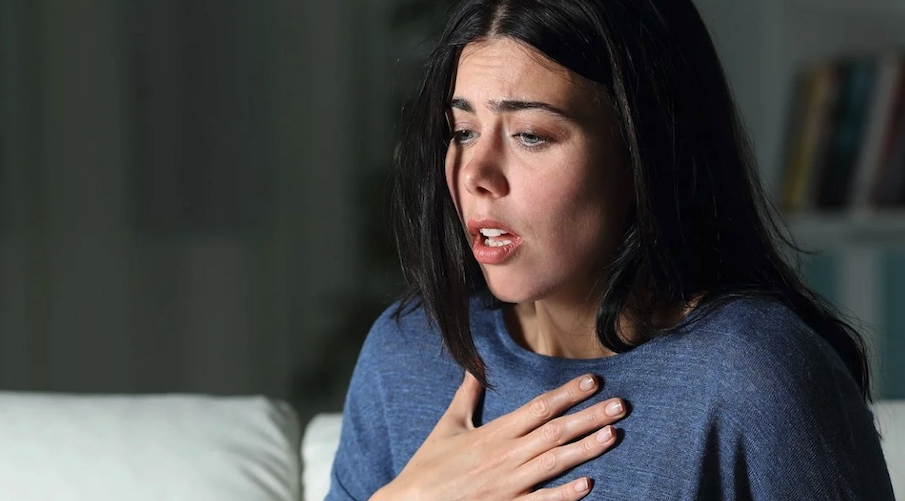Though struggling with anxiety, especially in the workplace, can be an isolating experience, sufferers are far from alone.
There have been increasing rates of people reporting frequent symptoms of anxiousness and stress, with the cumulative impact of the coronavirus crisis prompting speculation of a “mental health pandemic”, in the words of the Office for National Statistics.
Even before the novel coronavirus turned everyone’s life upside down, navigating workplace anxiety was a growing problem.
A 2020 survey showed that 79% had reported stress induced by their job, but more than half (59%) had said the same just two years previously.
Whatever the cause, stress and anxiety are spiking in people’s personal and professional lives. The urgent question, then, is what can be done about this?
3 Ways How to Stop Feeling Anxious:

1. Use CBD oil.
The National Institute of Drug Abuse (NIDA) has found that for generalised anxiety disorder, or GAD, cannabidiol “has shown therapeutic efficacy” in anxiety and stress in a range of studies, “reducing both behavioural and physiological (e.g, heart rate) measures of stress and anxiety”.
For the more cyclical seasonal affective disorder, or SAD, clinical research found that participants given an oral dose of 600mg reported reduced levels of anxiety.
In social anxiety disorder, human patients who took CBD oil before having to give a big speech also reported significantly less anxious symptoms than their counterparts.
All of these potential positive effects come down to the CBD’s interaction with our body’s endocannabinoids, the neurotransmitters that bind to cannabinoid receptors in our nervous system and impact things like pain and mood.
Trying it yourself could therefore be a great way of managing your workplace anxiety.
Another perk of this compound is that it can be taken easily by doing so sublingually (under the tongue) and at any time of the day, though bear in mind that users are recommended to start off light and talk to their doctor first.
The CBD gurus over at TRIP suggest that “when trying for the first time, start a new ritual with a regular dose, 15 to 30 MG per serve, note how you feel from this, and you can then dose up if you wish”.
2. Lower your caffeine intake.
Since caffeine is a stimulant, it is very good at exaggerating your psychiatric state. If you were already in a fearful state, getting hepped up on your espresso beforehand is only going to make your behavior more reactive and intensify symptoms of anxiety, such as increased heart rate and nervousness.
You may also have noticed how after one too many cups you get a bit jittery, or even begin having something of an out of body experience.
For someone with an already nervous disposition, such as social anxiety or panic disorder, overdoing it with caffeine can be a one way ticket to an anxiety attack.
Drinking too much of the black stuff is also not great for your natural sleep cycles, as it suppresses the valuable sleepy hormone called melatonin.
This can also be harmful for your mental wellbeing because it may contribute to a vicious cycle of sleep impaired by anxiety, and the daytime anxiety compounded by not enough quality sleep.
While caffeine is not inherently a bad or good drug, as with anything, moderation is key. If you’re worried about losing focus and alertness though, we’re not suggesting doing away with coffee altogether, in fact, the side effects from quitting caffeine are probably more than most of us could handle.
Just taper the amount that you think you need, and have a strict cut off point afterwards.
3. Don’t suppress it, accept it.
Whether it’s the dreaded anticipation of a virtual meeting, a workload that seems impossible to get on top of or complex colleague relationships, some of the worst advice, which, sadly, is also some of the most common, is that we should just ignore our anxiety and try and get on with the job. But if you want to combat it effectively, this is a big no no.
Whatever you do, acknowledge the symptoms when they spring up. This can be a challenge, because anxiety activates avoidant behavior in us, a not so nifty hangover from our evolutionary fight or flight response.
In the face of feeling that any small number of decisions we take will result in our complete and utter doom, there is nothing more desirable than escaping this feeling.
People often go without treating their anxiety for a long time because they have managed it through distracting themselves.
What you should remember?
It’s complicated, because anxiety can be attached to some nameable situations, like an important deadline or client meeting, or a public health crisis we have all been living through, but it can also appear to have no clear cause.
If you notice tension, restlessness and an increased heart rate, especially when you’re not sure why, firstly take a minute to step back and acknowledge it, and try to calm yourself down as best you can.
This is the first step to finding a proactive solution, such as expressing your difficulties to your employer, not simply because it is interfering with your ability to do your job, but your readiness to switch off at the end of the day.
For many, raising your emotional and mental health with your line manager or employer can seem out of the question, but it is absolutely essential, you can’t accept your problems if you don’t act on them out of fear of what others may think.






